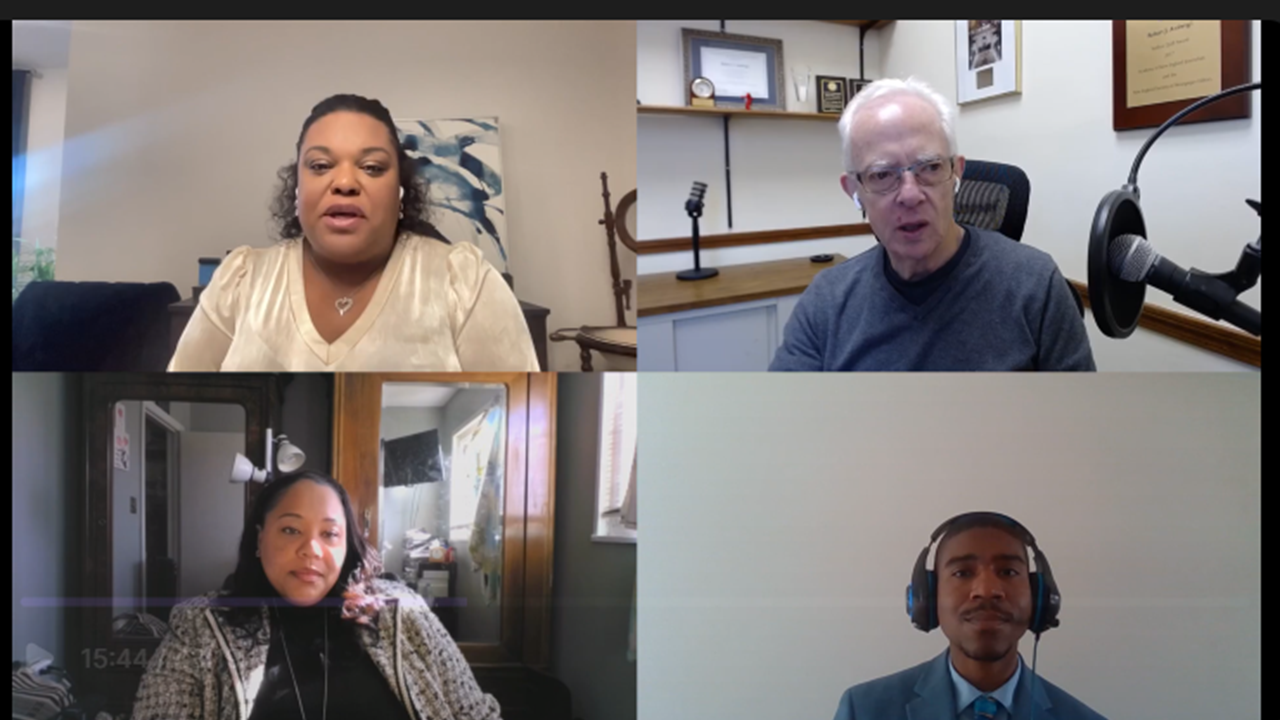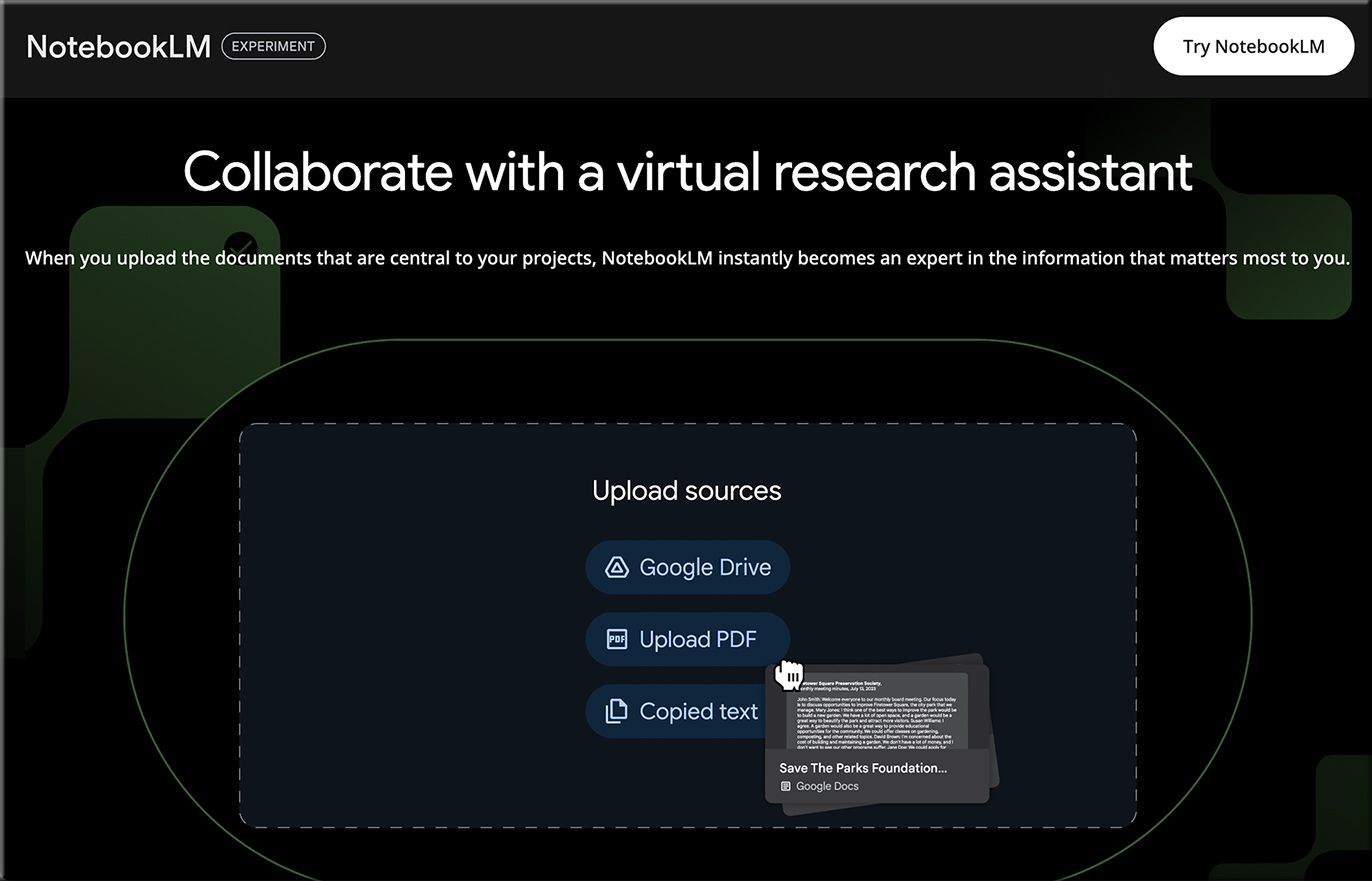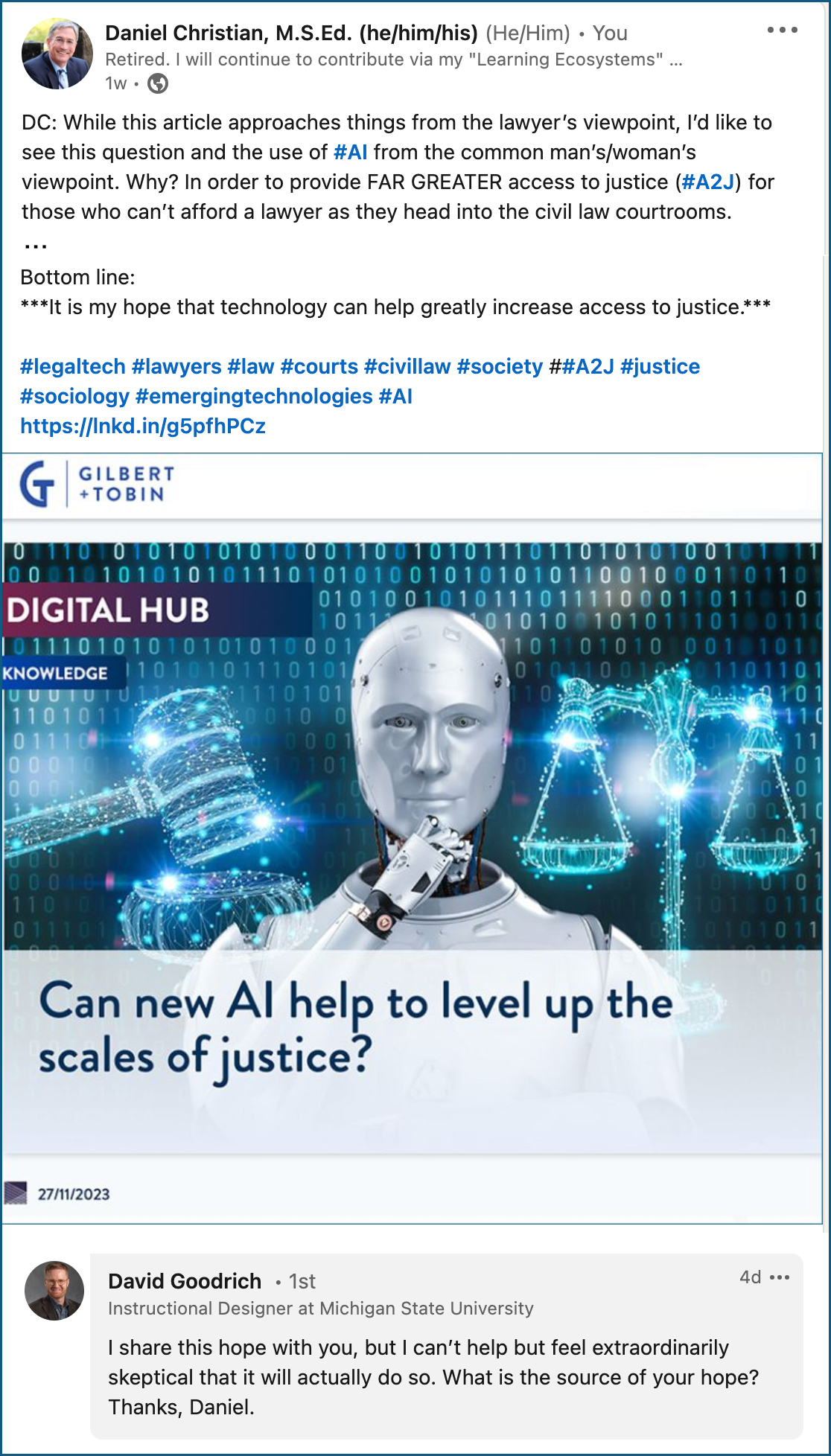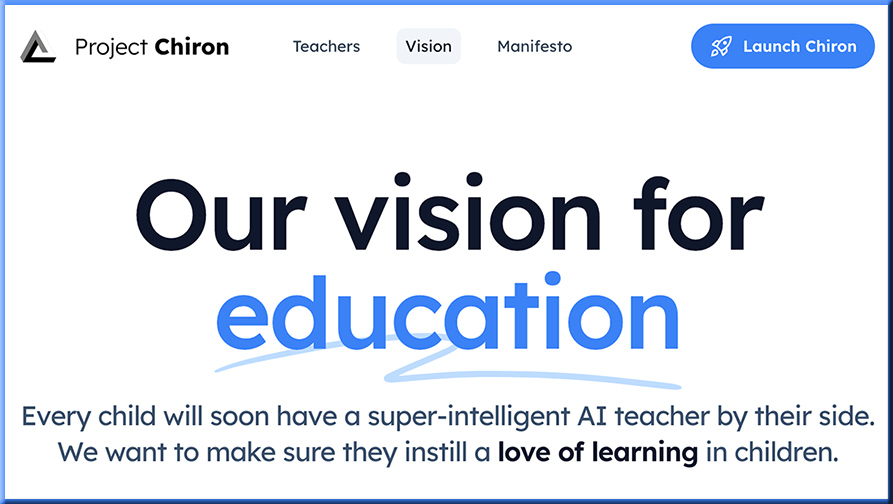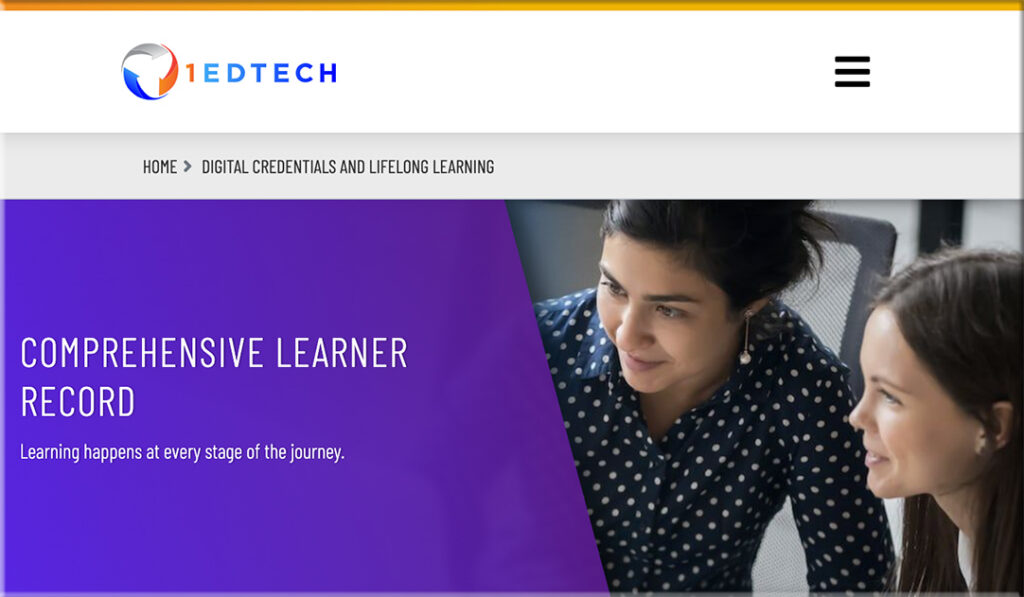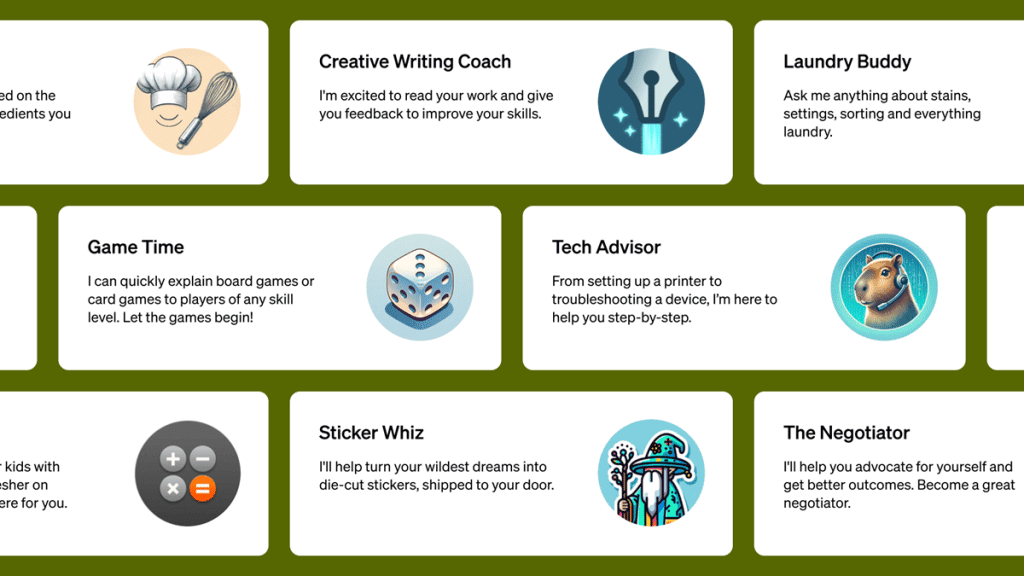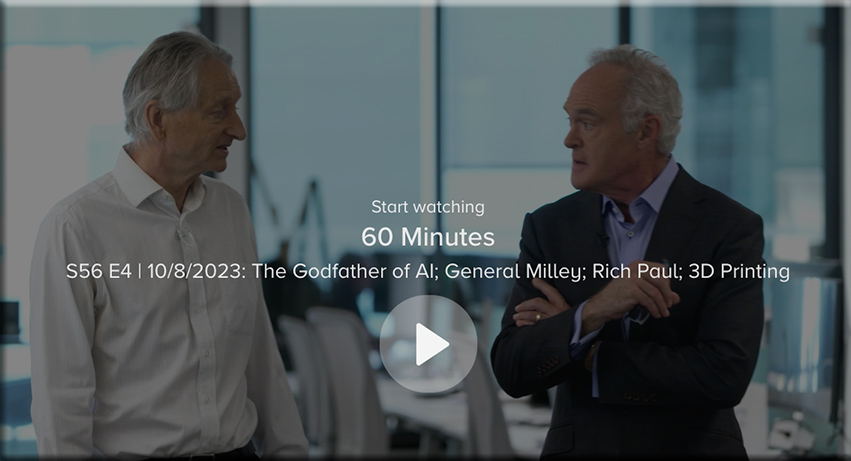Shocking AI Statistics in 2023 — from techthatmatters.beehiiv.com by Harsh Makadia
- Chat GPT reached 100 million users faster than any other app. By February 2023, the chat.openai.com website saw an average of 25 million daily visitors. How can this rise in AI usage benefit your business’s function?
- 45% of executives say the popularity of ChatGPT has led them to increase investment in AI. If executives are investing in AI personally, then how will their beliefs affect corporate investment in AI to drive automation further? Also, how will this affect the amount of workers hired to manage AI systems within companies?
- eMarketer predicts that in 2024 at least 20% of Americans will use ChatGPT monthly and that a fifth of them are 25-34 year olds in the workforce. Does this mean that there are more young workers using AI?
- …plus 10 more stats
People are speaking with ChatGPT for hours, bringing 2013’s Her closer to reality — from arstechnica.com by Benj Edwards
Long mobile conversations with the AI assistant using AirPods echo the sci-fi film.
It turns out that Willison’s experience is far from unique. Others have been spending hours talking to ChatGPT using its voice recognition and voice synthesis features, sometimes through car connections. The realistic nature of the voice interaction feels largely effortless, but it’s not flawless. Sometimes, it has trouble in noisy environments, and there can be a pause between statements. But the way the ChatGPT voices simulate vocal ticks and noises feels very human. “I’ve been using the voice function since yesterday and noticed that it makes breathing sounds when it speaks,” said one Reddit user. “It takes a deep breath before starting a sentence. And today, actually a minute ago, it coughed between words while answering my questions.”
From DSC:
Hmmmmmmm….I’m not liking the sound of this on my initial take of it. But perhaps there are some real positives to this. I need to keep an open mind.
Working with AI: Two paths to prompting — from oneusefulthing.org by Ethan Mollick
Don’t overcomplicate things
- Conversational Prompting [From DSC: i.e., keep it simple]
- Structured Prompting
For most people, [Conversational Prompting] is good enough to get started, and it is the technique I use most of the time when working with AI. Don’t overcomplicate things, just interact with the system and see what happens. After you have some experience, however, you may decide that you want to create prompts you can share with others, prompts that incorporate your expertise. We call this approach Structured Prompting, and, while improving AIs may make it irrelevant soon, it is currently a useful tool for helping others by encoding your knowledge into a prompt that anyone can use.
These fake images reveal how AI amplifies our worst stereotypes — from washingtonpost.com by Nitasha Tiku, Kevin Schaul, and Szu Yu Chen (behind paywall)
AI image generators like Stable Diffusion and DALL-E amplify bias in gender and race, despite efforts to detoxify the data fueling these results.
Artificial intelligence image tools have a tendency to spin up disturbing clichés: Asian women are hypersexual. Africans are primitive. Europeans are worldly. Leaders are men. Prisoners are Black.
These stereotypes don’t reflect the real world; they stem from the data that trains the technology. Grabbed from the internet, these troves can be toxic — rife with pornography, misogyny, violence and bigotry.
Abeba Birhane, senior advisor for AI accountability at the Mozilla Foundation, contends that the tools can be improved if companies work hard to improve the data — an outcome she considers unlikely. In the meantime, the impact of these stereotypes will fall most heavily on the same communities harmed during the social media era, she said, adding: “People at the margins of society are continually excluded.”
ChatGPT app revenue shows no signs of slowing, but some other AI apps top it — from techcrunch.com by Sarah Perez; Via AI Valley – Barsee
ChatGPT, the AI-powered chatbot from OpenAI, far outpaces all other AI chatbot apps on mobile devices in terms of downloads and is a market leader by revenue, as well. However, it’s surprisingly not the top AI app by revenue — several photo AI apps and even other AI chatbots are actually making more money than ChatGPT, despite the latter having become a household name for an AI chat experience.
ChatGPT can now analyze files you upload to it without a plugin — from bgr.com by Joshua Hawkins; via Superhuman
According to new reports, OpenAI has begun rolling out a more streamlined approach to how people use ChatGPT. The new system will allow the AI to choose a model automatically, letting you run Python code, open a web browser, or generate images with DALL-E without extra interaction. Additionally, ChatGPT will now let you upload and analyze files.









